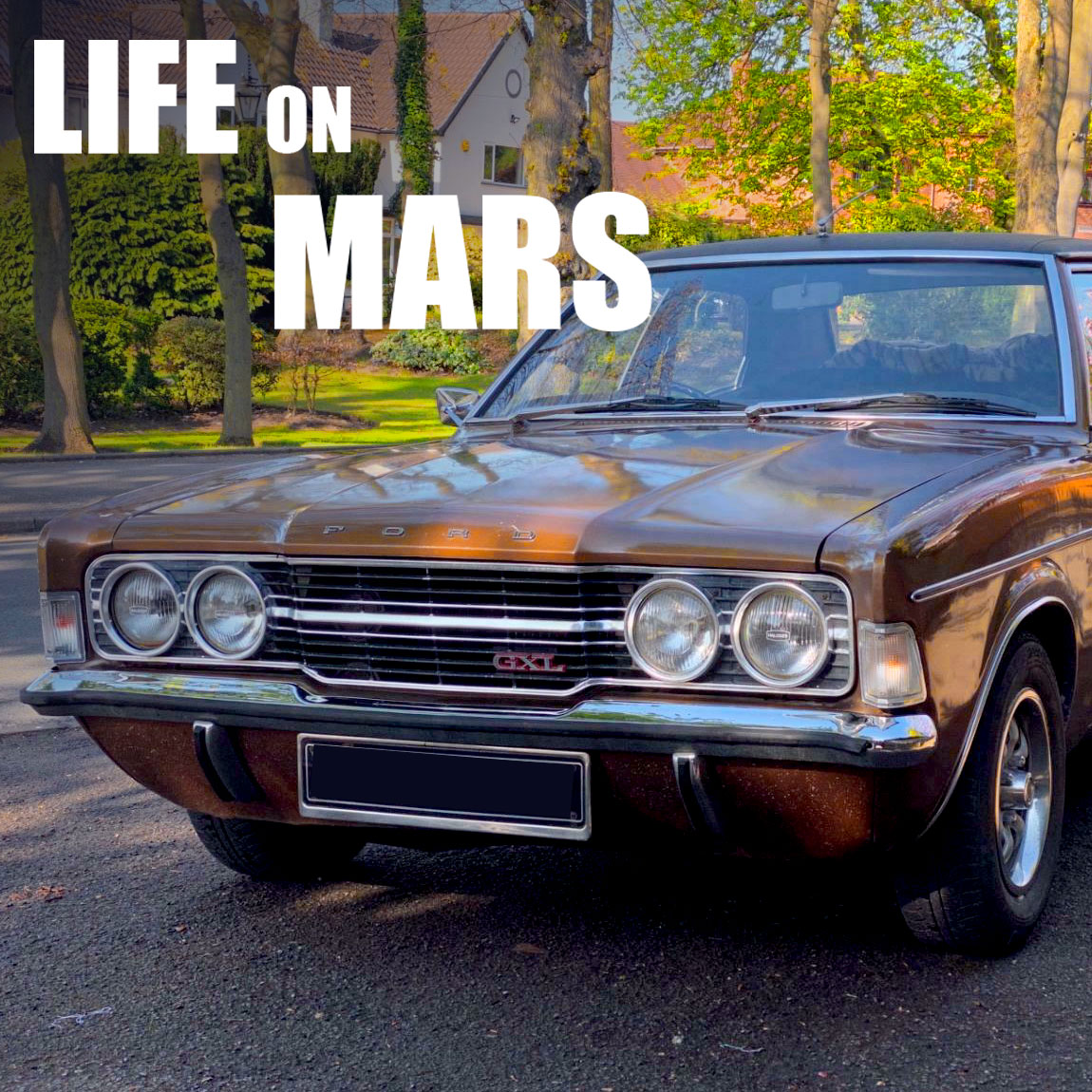Life on Mars
Contributor: Rosalind Esche
The thing that has kept me going during all three lockdowns has been the British tv drama series Life on Mars, first unleashed on our tv screens 15 years ago in January 2006. I somehow managed to miss it then, but discovered it, thanks to my son, during the first lockdown during the spring of 2020. Now I wonder how on earth I’ve managed without it all this time. What a life saver! Life on Mars boasts some of the best writing for British tv drama in living memory. This is no ordinary popular tv series, it is so much more than that. In case you don’t know, it’s about a police detective who has a car accident in 2006 and wakes up in 1973. If that sounds bizarre, too “sci fi” for you, outlandish, silly even, don’t be put off – watch it, you’ll be surprised.
If you like strong characterisation, tight plotting, sharp dialogue, profound themes, laugh out loud humour – you will find all of these and more in Life on Mars. This is genuinely great writing. Life on Mars, groundbreaking in its day, has to be one of the most remarkable tv dramas ever broadcast – after 15 years it has not dated at all and is still held in great affection by legions of devotees. It is easy to see why – it fires your imagination, evokes powerful emotions, makes you fall in love with its characters, refuses to deal in easy stereotypes, presents you with complex moral dilemmas, surprises and challenges you, and amidst all of this it entertains and amuses with tremendous pace and energy.
The writers manage to create a seamless interweaving of all these disparate elements, producing a compelling drama enacted by characters who steal into your heart as each episode unfolds, drawing you into their world, making you care. The subtle layering of themes, and the cross referencing between not only the various plots, but between the two different worlds of 1973 and 2006, is deeply satisfying, and warrants more than one viewing in order to capture all of its rich complexity. Most of all it is the development of personal relationships between the characters which is ultimately so moving. But there is no sentimentality here, this is tough writing, demanding mature reflection on thought provoking subjects such as corruption, loyalty, conscience, duty, truth, loneliness, alienation, friendship and love.
Once you start watching it you feel an overwhelming need to discuss it endlessly with someone else who’s watching it, conversations can last hours and continue over days, weeks, months. Is Sam in a coma or is he mad, or has he actually travelled in time? Are his colleagues real, or a figment of his imagination? Who, or what, is Frank Morgan? Ultimately you realise that what really matters is the emotional immediacy of the drama itself – it isn’t meant to be a realistic text, it’s about the transformational power of love and friendship, about choosing life in the face of grey, bleak isolation.
This must be why Life on Mars speaks to so many people at the moment. Everyone I know who’s been watching it during lockdown has felt compelled to watch it over and over again. You never tire of it, and each time you re-watch an episode you discover something new. That is the mark of excellent writing. It is life affirming and uplifting, which is why it has become the comfort viewing of so many people during this wretched pandemic. It should be prescribed by the NHS as essential to mental wellbeing.
Hats off to writers Matthew Graham, Ashley Pharoah and others, for producing such great work, to the cast for exceptional acting, to the directors and producers and everyone else involved in this most wonderful drama series, what an outstanding achievement. Thank you for enriching my life.
Life on Mars is available on Britbox.
#LifeonMars


